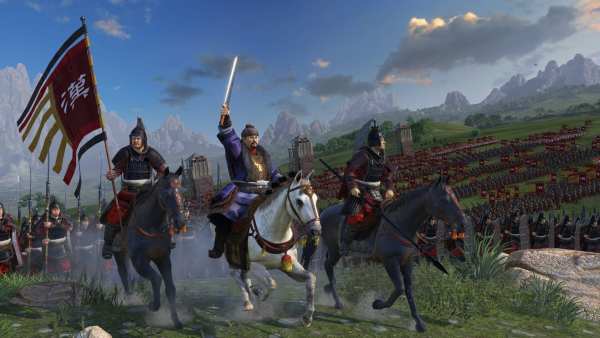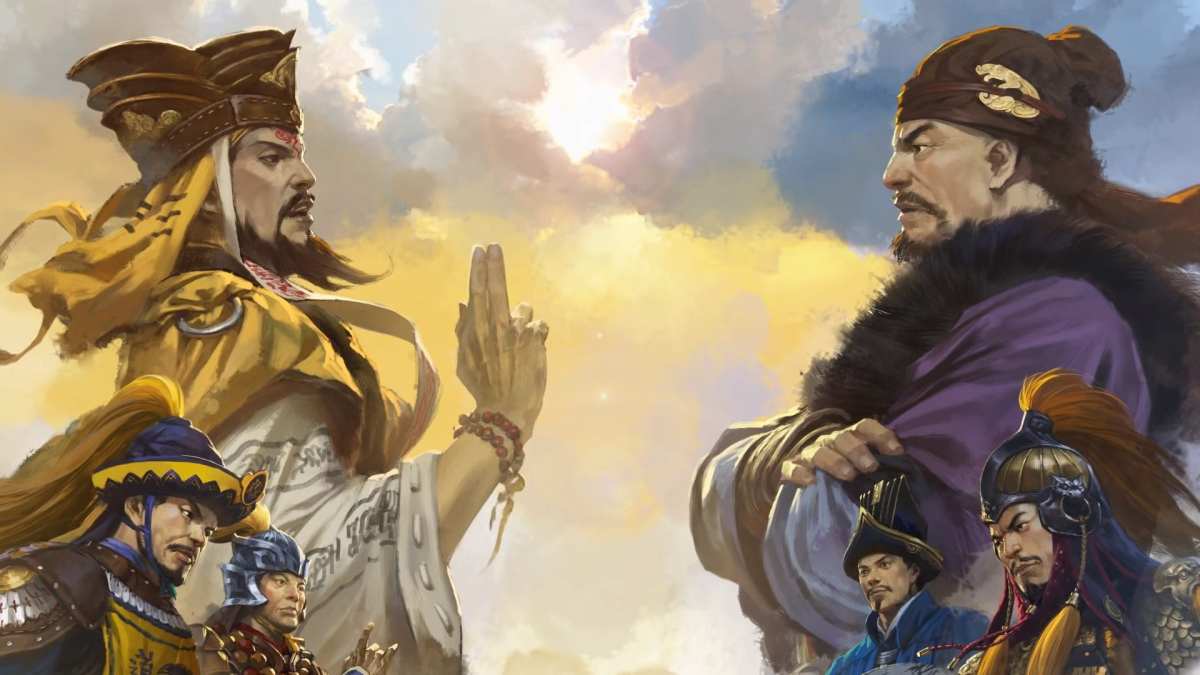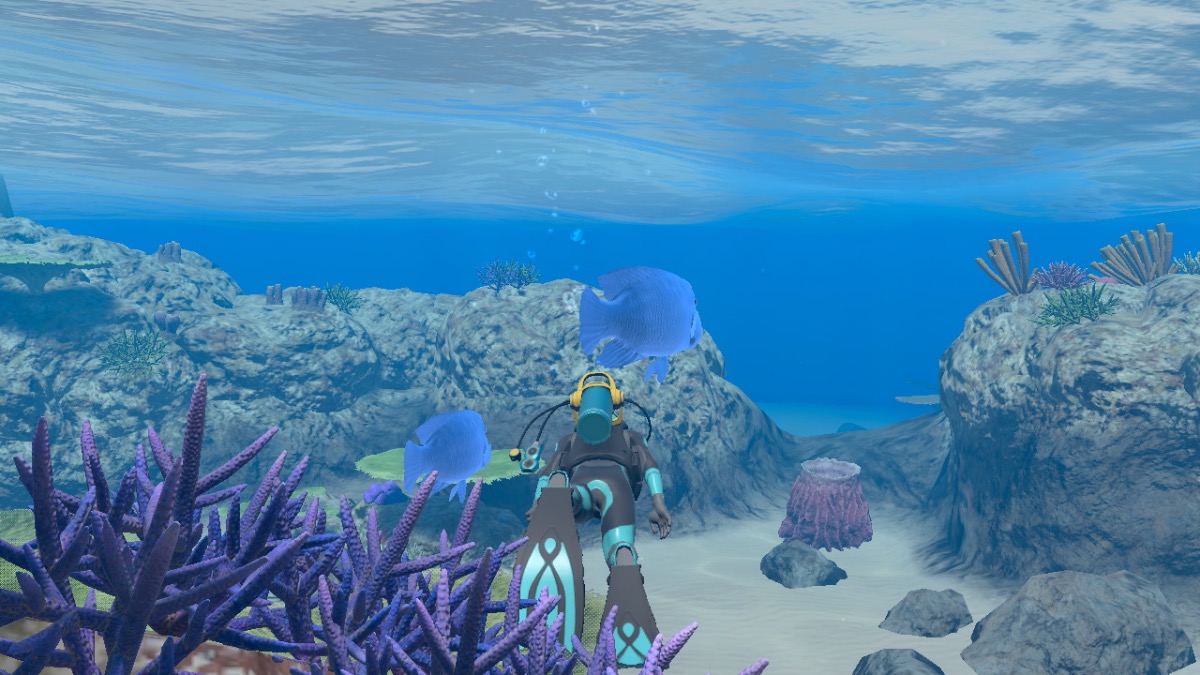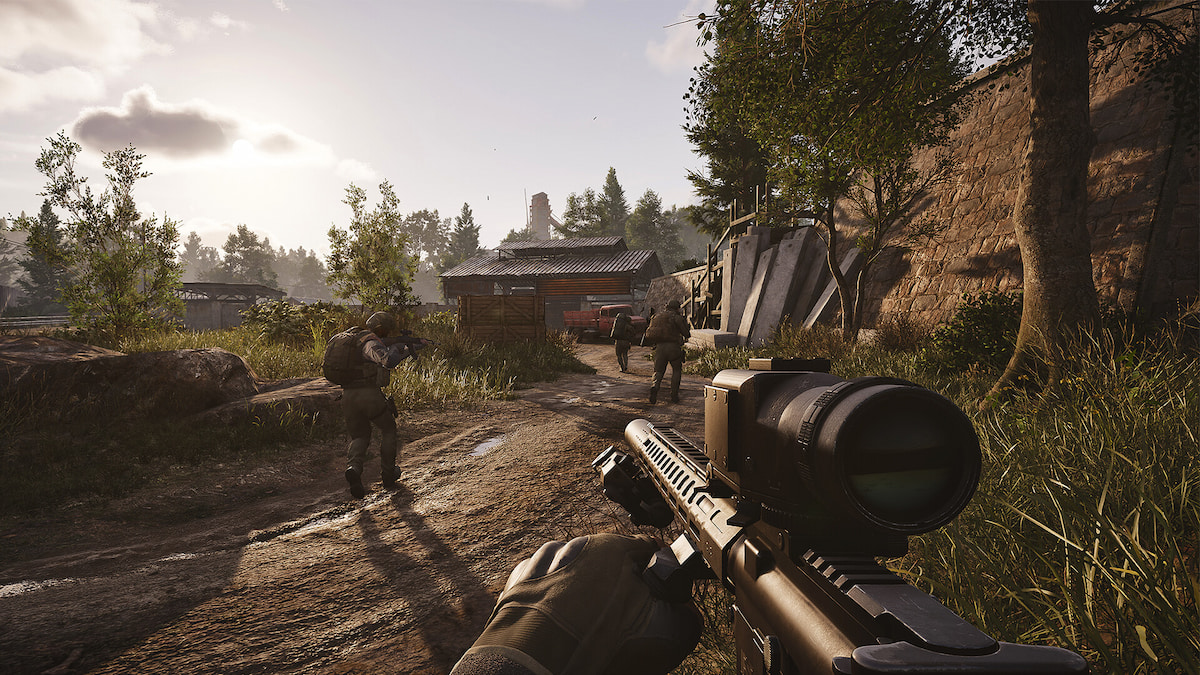Strategy games haven’t been traditionally known for their narrative depth. In recent years, the long-running Total War franchise, whose latest release Three Kingdoms, has sought to change this by putting an increased focus on the writing in their games, to exemplary results.
Games of this kind normally only test the strategic and tactical skills of players and therein lies the satisfaction of victory over an opponent, whether AI or otherwise. The result of Total War’s increased focus on narrative elevates the sandbox maps on which they take place to feel more compelling, which in turn makes the characters that inhabit them truly come alive.
Pete Stewart is a writer at Creative Assembly, the Horsham-based developer responsible for the Total War series of grand strategy games. Twinfinite recently spoke to him ahead of the release of the Mandate of Heaven Chapter Pack for Three Kingdoms in regards to the unique challenges that come with writing for something as open-ended as a Total War game.

Khayl Adam, Twinfinite Contributor: How did you find yourself writing narrative for a strategy series like Total War? What kind of path leads an English Literature major to game development?
Pete Stewart, Writer at Creative Assembly: A long one! When I graduated with my English degree, I had no real idea what I wanted to do and was actually a little daunted by the fact. However, I had always loved games and had always loved Total War in particular.
After a few years doing non-vocational jobs, I decided upon a path of trying to get into the games industry. This was hardly a successful venture at first, but eventually (and with a little, or a lot, of help from people I had gotten to know AT Creative Assembly) I was able to land a position in the QA (Quality Assurance) department.
Cut to a year after that and a position opened up on the writing team. At this time I was asked if I wanted to join and I gladly accepted. That was six years ago, so I suppose something must be going right!
Khayl: What does an average workday look like for you?
Stewart: At different points of a project, this answer is different, and you can rely on one thing to be consistent; my days will be inconsistent. However, most days begin with a ‘stand-up’, where the entire team (or, on a larger project, the entire discipline) will meet and discuss what they’ve been working on and what they intend to work on in the coming days.
So, for Three Kingdoms I would go to a design meeting in the morning and discuss our agenda and our intentions, then I would get back to my desk and begin writing in earnest.
The central part of any project for me is the bulk of writing; starting with any dialogue or voiced content (so that it can be given to the audio team for record and localization) and then non-voiced content.
This is by far the longest chunk of a project, so the simple answer is that an average day for me looks like this; meetings in the morning to establish the day’s tasks, and then down to writing for the rest of the day.
But at the start of a project, there will be many days with little to no writing at all, as a lot of planning and design has to be done before words can start to be written.
Khayl: You have writing credits for Rome II, Atilla, Warhammer I & II and most recently for Three Kingdoms. Do you have a favorite project in terms of your writing, and if so, why?
Stewart: My favorite project is Three Kingdoms, simply because it was the project I felt most personally attached to and the project for which we were able to do some interesting, fun stuff with, writing-wise. The Generals’ Speeches system, and the Battle Conversations, for instance, were two of the most fun things I’ve done in a while.
Additionally, changing up the style of Three Kingdoms so it read in-the-moment, as opposed to previous TW titles being written as a history book, looking back on the events, really made things fresh – both to read and to write.

Khayl: What was it like writing for the Warhammer games, and how did that differ from games based upon real-world history? Were you familiar with that universe’s lore?
Stewart: People often think the differences might be jarring between the two different TW genres, but it’s not hugely true. Warhammer lore is essentially history, just made up, so the same process of research and learning is required to understand what’s going on in each world.
Certainly, when you get down to the writing itself, Warhammer is more over-the-top and decadently self-indulgent, which can be a real delight. However, even Three Kingdoms has, between the spiritual philosophy, some truly outrageous claims and characters, so there are still connecting lines between the two.
I don’t get to write Skaven chittering in Three Kingdoms, however, so that can be sad.
Khayl: What kind of research do you do for a given project? Are you directed to specific works or is there an element of freedom in choosing historical sources?
Stewart: Whilst I wouldn’t say ‘freedom’, there is a certain laissez-faire attitude towards us finding our own texts, with a caveat. We have a bank of resources that we refer to as a team that forms the core of a project’s research.
So, for Three Kingdoms, four very important texts where Rafe de Crespigny’s A Bibliographical Dictionary of Later Han to the Three Kingdoms, as well as The Cambridge History of Ancient China and, of course, both the Romance of the Three Kingdoms and the official Records of the Three Kingdoms.
Outside of that, however, we as the text team sourced our own materials as well, and organized our own research – we often look for books that tells us some fun ‘hidden’ facts and obscura; sources that reveal to us idiosyncrasies of the time that we can then use in areas of the game like ancillaries, weapons, traits, and so on.
Khayl: In regard to Three Kingdoms, did any media or sources inspire your characterization of the principal players such as Cao Cao or Liu Bei? The 2010 Chinese TV series of the same name seems to be one, at least in tone, but were there others?
Stewart: We looked at a lot of different sources to settle on our characters, and I wouldn’t say one source defined them all. Our Cao Cao and Liu Bei, for instance, seem to me more drawn from the movie Red Cliff, as opposed to the 2010 TV show (Cao Cao is so much different in that one!).
However, we drew strongly from depictions in the original Romance, without going overboard (Liu Bei’s earlobes, for instance, do not stretch down his whole body), and then matched that against our own internal art style.
There is a lot of Three Kingdoms media out there, so ultimately we wanted to give homage to those that had come before and helped shaped our understanding of the era, whilst also forging our own interpretation of these characters that mean so much to so many people.
Khayl: Who is your favorite character from the pantheon of ROTK, and why is it Cao Cao?
Stewart: Cao Cao is actually a close second, I’m afraid! The true and only Best Boy of Three Kingdoms is Zhuge Liang. And, as I’ve said in previous interviews, I really don’t think I have to justify why that is.
Khayl: The story of the Romance of the Three Kingdoms is considered one of the four great classics of Chinese literature. What was is like adapting it for Western audiences, and how was it received by Chinese players?
Stewart: Ultimately, our goal with Three Kingdoms was to create a great game that was hugely authentic to both the original Romance and the history of the time (derived from the Records of the Three Kingdoms) and a great, entertaining game.
But this is one of the first times we’ve dealt with an era of history so close to an entire people; the legends and histories from this era have permeated the culture of China and so we had to treat it with the utmost respect.
Whilst I wouldn’t say this made it difficult, it certainly created some interesting challenges as a writer as to how to do justice to these characters, some of whom have become literal gods to later generations.
The feedback I’ve seen from our Chinese audience has been positive, on the whole! We always have room to improve, I’m certain, but it’s heartening to read that our interpretations of the characters have been well-received, with some feedback even shocked that such an authentic game could be made by a British studio.

Khayl: What was the greatest challenge you faced whilst working on Three Kingdoms? Where there any cultural concepts or themes you had difficulty adapting or found did not translate well?
Stewart: No, not really if I’m honest. Part of the preparation for any Total War game is immersing yourself entirely in the culture and the world you’re going to be creating.
However, it is certainly true that this is the first time for me that I’ve written a Total War game that’s not set in western culture. Obviously, the team made Shogun in the past, however, it was still daunting to get to grips with another culture and learn what doesn’t translate well from our western ideology into an eastern one!
Khayl: Do you have a favorite piece of writing from the game or characterization that you particularly liked? There are some great jokes written into battle barks, I loved everything regarding Sun Jian and his lineage. Who comes up with those?
Stewart: I think the entire team did a great job in characterizing Dong Zhuo, who remains one of my favorite-written characters in the game. Together with Dion Lay, the other primary writer on the project, we really managed to burrow down into the cruelty and sadism of his character, whilst also hinting at what it was that made him tick and made him as cruel as he was – a drive for vengeance against an empire that has overlooked him.
None of that excuses how petty, malicious and twisted he was, but it adds a dimension that made him more than just one-faced villain, and I’m proud of the team’s work on that.
Personally, for me, though, the Battlefield Conversations remain one of my favorite things from the game. It was a piece of writing that I undertook entirely by myself, although the actual lines themselves were informed through discussion with designers, references to old games and movies, and actual (light-hearted) arguments and banter I had around the office.
Whilst they don’t land 100% of the time, I think they bring a great dimension to the battle, and the fact that I still laugh at some of them to this day speaks volumes about them (or, as the case may be, about me…)
Khayl: The first Chapter Pack DLC, Eight Princes, was set 100 years after the Rise of the Warlords scenario of the base game, and the soon to be released Mandate of Heaven is set eight years prior to Rise of the Warlords. How are these time periods chosen, and what criteria are used to determine them?
Stewart: Generally, we take on board the feedback of our players when considering where to set our additional content, but we also consider things that we find interesting too. Eight Princes was the first real shot at a dynasty after the collapse of the Han, and we thought it was fascinating to see how their chance at a unified China transpired, and the issues that ultimately led to its downfall (spoiler: it’s the same petty reasons as the Han).
However, we also certainly recognize that there is a huge well of untold stories around the immediate scope of our game, and Mandate of Heaven fit right into the Venn diagram circles of ‘things we were interested in’ and ‘content that helps to reshape and improve the grand campaign as well’. Mandate is the perfect prequel to our main game, helping to contextualize the Three Kingdoms struggle and allowing the players to forge into the main campaign with a total terraformed situation.
We were also able to add a host of new features and content than bolsters the gameplay and makes the game more dynamic and interesting.

Khayl: The Mandate of Heaven Chapter Pack serves as a prequel to the Rise of the Warlords scenario of the base game, and in it, you will be able to play a campaign from the new starting point in 182 CE through and beyond the time frame of the main scenario. Were there any specific challenges in writing for a time period that needs to conform to the status quo of the main scenario?
Stewart: Fewer challenges than you might think, but we certainly had to make sure that a lot of our descriptions, events, and dialogue worked retroactively. This wasn’t an enormous task but it was fairly painstaking to trawl through old documents and make sure that nothing hyper-specific to the 192 period existed, and if it did to just massage it into working for both starting positions. We were pretty thorough, I hope!
However, as the Mandate starting position is before the Rise of the Warlords starting position, everything we wrote brand new for Mandate will work forwards into Rise of the Warlords.
Unless I have made a terrible, terrible mistake…
Khayl: With the Mandate of Heaven releasing imminently, can you recommend a faction or warlord that you think would be interesting to play through this new time period as from a narrative or role-playing perspective?
Stewart: If you want a challenge, play as the Han emperor! If you want to see what might lead a man to total despotism, or try to avoid that same fate, play as Dong Zhuo. If you want to know what it might be like to play as the emperor who could have been, play as Liu Chong. But if you want to see the whole thing torn down, and see if you could succeed where they failed, play as the Zhang brothers!
Special thanks to Pete Stewart, Sega, and Creative Assembly for sparing some time to talk to us. You can read Twinfinite’s review of the base game of Total War: Three Kingdoms right here. Spoilers: we loved it




